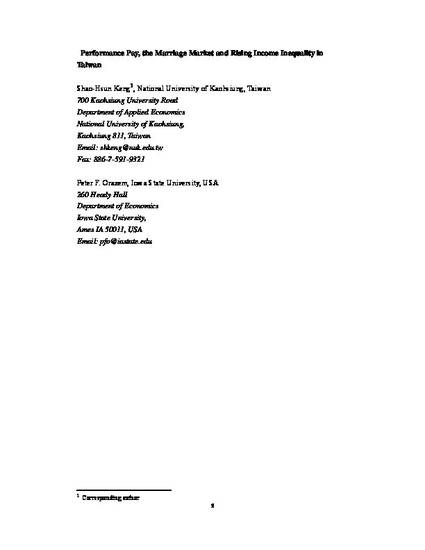
Taiwan expanded its college access significantly over the past two decades by converting 2-year junior colleges to 4-year colleges and relaxing entrance standards. The share of college graduates in the 22–24 years old population rose from 12 to 71% between 1990 and 2014. This should have suppressed returns to schooling and lowered household income inequality. Instead, Taiwan’s Gini coefficient rose. We show that rising use of performance pay and positive assortative mating in the marriage market jointly increase the household income inequality by 46.5% between 1980 and 2014. Our results suggest that uneven quality of the most recent cohorts of college graduates led to two sources of rising household income inequality: the increased use of bonus pay which increases residual inequality among college graduates; and matching on unobserved skills in the marriage market which increases inequality among married couples.
Available at: http://works.bepress.com/peter-orazem/140/

This is a working paper of an article published as Keng, SH., Orazem, P.F. Performance pay, the marriage market and rising income inequality in Taiwan. Rev Econ Household 17, 969–992 (2019). doi: 10.1007/s11150-018-9434-0. Posted with permission.